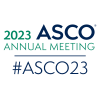Cómo afecta la quimioterapia a las personas mayores de 65 años
Muchas personas con cáncer reciben tratamiento con quimioterapia. La quimioterapia es el uso de medicamentos para destruir las células cancerosas. Puede utilizarse además de otros tratamientos, como cirugía, radiación, terapia dirigida e inmunoterapia, o puede administrarse como el único tratamiento.
Los adultos mayores de 65 años con cáncer pueden tener una reacción más fuerte a los tratamientos de quimioterapia. Esto significa que pueden tener peores efectos secundarios o tardar más tiempo en recuperarse después de que finalice el tratamiento con quimioterapia.


